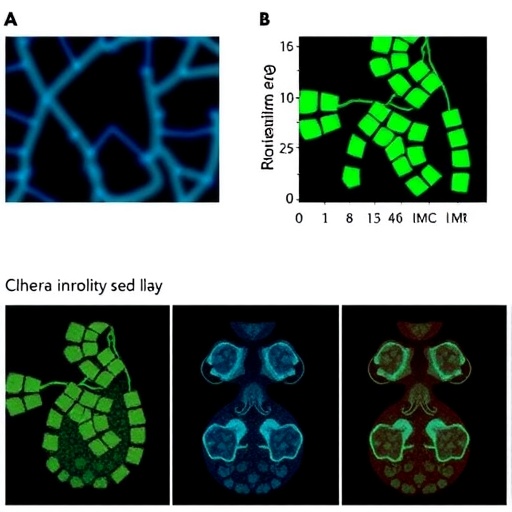In recent years, the clinical management of nephrotic syndrome in pediatric populations has garnered increasing attention due to its significant impact on children’s health and wellbeing. A groundbreaking study that has recently been published addresses a critical aspect of this condition: the combined effects of rituximab and targeted care on treatment outcomes. This randomized controlled trial, conducted by an international team of researchers led by He et al., has opened new avenues for improving patient care, providing insight into the efficacy, quality of life, adverse reactions, and recurrence rates associated with nephrotic syndrome treatments.
Nephrotic syndrome predominantly affects children and is characterized by significant proteinuria, hypoalbuminemia, and edema. The traditional treatment regimens, primarily reliant on corticosteroids, do not yield satisfactory outcomes for every patient. Consequently, this inconsistency in treatment response has led to the exploration of alternative therapeutic strategies. Among these strategies, rituximab—a monoclonal antibody that targets CD20 on B cells—has emerged as a promising candidate. The researchers aimed to assess how the addition of rituximab to a targeted care approach could potentially enhance overall treatment efficacy.
One of the key objectives outlined in the study was to evaluate the treatment response in children receiving both rituximab and targeted care compared to those receiving standard corticosteroid therapy. The importance of these findings cannot be overstated, as they allow for a more refined understanding of treatment modalities that could improve the outcomes for children suffering from this debilitating syndrome. The randomized controlled design of the trials adds robustness to the findings, providing a solid foundation for recommendations that could alter clinical practice.
Quality of life (QoL) is another critical factor in assessing treatment outcomes. For children with chronic health conditions such as nephrotic syndrome, quality of life encompasses more than just clinical measures; it includes emotional, psychological, and social dimensions. The study meticulously measured QoL indicators to determine if the addition of rituximab would translate into tangible improvements in everyday living for affected children. The results indicated a significant enhancement in QoL, aligning with the hypothesis that more effective treatment regimens can foster better emotional and social outcomes alongside physical health improvements.
Adverse reactions remain a concern for any therapeutic intervention, particularly in pediatric populations that may experience differing side effects from adult counterparts. The study thoughtfully addressed this concern by monitoring adverse reactions related to both rituximab and corticosteroid therapies. The findings demonstrated a manageable safety profile for rituximab, with adverse effects occurring less frequently compared to what has been observed with prolonged steroid use, thereby reinforcing the potential for rituximab to act as a safer alternative in certain pediatric patients.
The recurrence rates of nephrotic syndrome also emerged as a pivotal aspect of the research. Understanding the frequency of relapse is critical for clinicians devising long-term management strategies. The trial’s findings suggested that children treated with the combination of rituximab and targeted care exhibited a markedly lower rate of relapse, indicating that this approach could potentially alter the course of the disease and reduce the burden on families and healthcare systems alike.
As clinical research continues to evolve, the implications of these findings cannot be understated. The efficacy of rituximab coupled with a targeted care framework represents a paradigm shift in treating nephrotic syndrome in children. It offers hope not only for improved clinical outcomes but also for better overall quality of life, a primary goal in pediatric healthcare. The sustained efforts in this area underscore the commitment to advancing knowledge and skills that enhance patient care.
Furthermore, this trial serves as a significant contribution to the body of literature on nephrotic syndrome, highlighting the need for ongoing research into alternative treatments. Researchers and healthcare providers must remain vigilant to continuously evaluate and adapt based on emerging data. This dynamic approach ensures that treatment methodologies remain aligned with the evolving understanding of pediatric nephrology, ultimately benefiting countless children who rely on these lifesaving strategies.
In conclusion, the study led by He et al. provides a compelling narrative of how innovative approaches can reshape the future of nephrotic syndrome management. By understanding the comprehensive impacts of combining rituximab with targeted care, this research does not merely scratch the surface of treatment efficacy. It delves into the heart of patient experience, recognizing that health is multifaceted, extending beyond mere clinical endpoints. As the discourse surrounding nephrotic syndrome deepens, it is incumbent upon the medical community to harness such insights and translate them into practice for the benefit of young patients everywhere.
As we move forward, sustained collaboration among researchers, clinicians, and families will remain essential to ensure that the findings from studies like this one are effectively integrated into therapeutic options available to those battling nephrotic syndrome. The future is bright, as this pioneering work paves the way for improved interventions and a deeper understanding of pediatric nephrology.
Subject of Research: The combined impact of rituximab and targeted care on treatment outcomes in children with nephrotic syndrome.
Article Title: Combined impact of rituximab and target care on efficacy, quality of life, adverse reactions and recurrence rate in children with nephrotic syndrome: a randomized controlled trial.
Article References:
He, L., Mei, H., Gu, Y. et al. Combined impact of rituximab and target care on efficacy, quality of life, adverse reactions and recurrence rate in children with nephrotic syndrome: a randomized controlled trial.
BMC Pediatr 25, 691 (2025). https://doi.org/10.1186/s12887-025-06070-0
Image Credits: AI Generated
DOI: 10.1186/s12887-025-06070-0
Keywords: nephrotic syndrome, rituximab, pediatric care, quality of life, adverse reactions, recurrence rates, randomized controlled trial.
Tags: adverse reactions to rituximabcorticosteroid alternatives for nephrotic syndromeenhancing treatment efficacy in nephrotic syndromeimproving quality of life in childrenmonoclonal antibodies in nephrotic syndromenephrotic syndrome treatment outcomespediatric nephrotic syndrome managementproteinuria management in childrenrandomized controlled trial nephrotic syndromerecurrence rates in pediatric nephrotic syndromerituximab in pediatric nephrotic syndrometargeted care for nephrotic syndrome





